|
Allingham Remembered
The 50th
anniversary of the death of Margery Allingham, one of the Golden Age’s ‘Queens
of Crime’ was marked in the eastern region with a feature in the East
Anglian Daily Times and a stunning exhibition of her extensive published
work and of her most famous creation, Albert Campion, at Essex University.
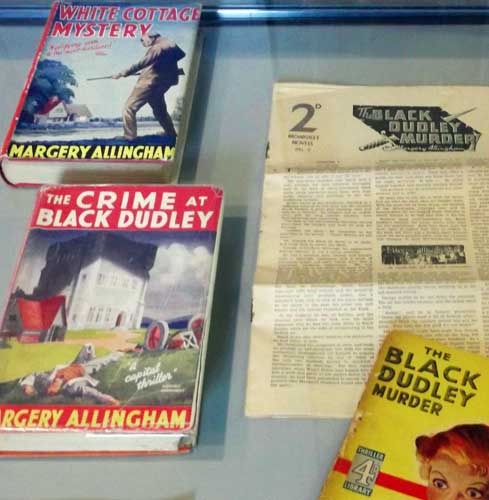
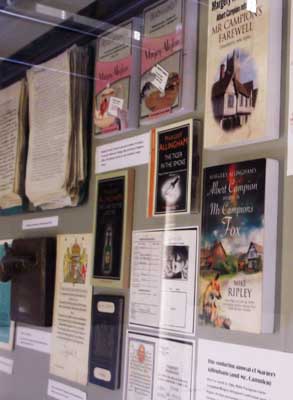
I even had
the honour of having two of my ‘Mr Campion’ continuation novels included as a
tiny footnote, making the point that Margery’s legacy lives on.
Members of
the Margery Allingham Society were granted a rare opportunity to visit the
gardens of D’Arcy House in Tolleshunt D’Arcy on the Essex marshes, which was
Margery’s home (and where she was a keen gardener) for more than thirty years.
Society members were also allowed to visit the studio where Margery wrote and
where her husband Pip Youngman Carter painted and illustrated book jackets.
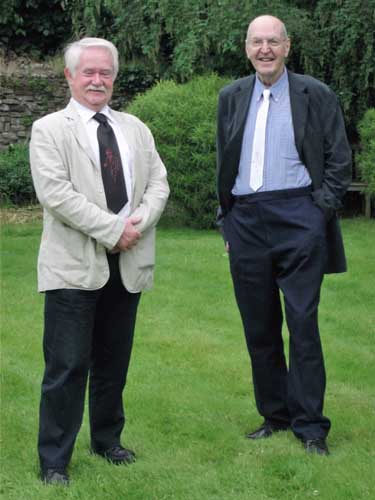
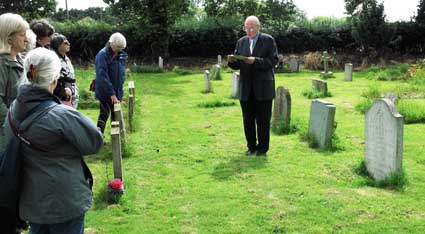
To conclude
the Society’s commemoration, members gathered at the grave of Margery and Pip
in St Nicholas’ churchyard, to hear a eulogy from Society chairman Barry Pike.
In Court
It is always
fun to visit fashionable Goldsboro Books in Cecil Court, London, but especially
so when they are throwing one of their legendary street parties. The occasion
in July was a History in the Court event,
focussing on historical fiction and very civilised it was too. The usually
less-civilised (but equally fun) Crime in
the Court which highlights crime writing takes place this year on 29th
September.

There were,
however, quite a number of well-known crime-writers present at History in the Court, not the least
Andrew Taylor who was on duty to announce the short-list for the History
Writers’ Association’s Goldsboro Debut Crown to be awarded at the Harrogate
History Festival in October. The short-list, incidentally, comprises: Death
and Mr Pickwick by Stephen Jarvis, Eden Gardens by Louise Brown, The
Hoarse Oaths of Fife by Chris Moore, Mrs Engels by Gavin
McCrea, Summertime by Vanessa Lafaye and Wolf Winter by Cecilia
Ekbäck.
Now on only
brief acquaintance, some of the titles on that short-list seem to suggest
criminal elements and I think they would find favour with readers of crime
fiction. Certainly they seem to have attracted crime writers as present at the
event were Michael Ridpath, Len Tyler and Ruth Dudley Edwards among, no doubt,
many I missed.
I made sure,
however, that Sarah Dunant did not escape before she had signed my copy of her
1991 crime novel Birth Marks, an ambush I have been waiting to spring for
twenty-five years.
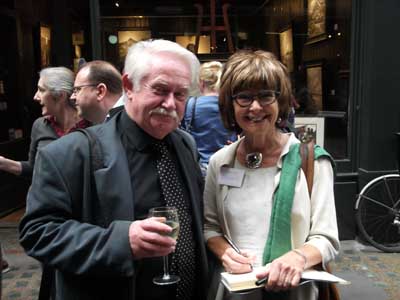
After a
successful career in television, Sarah turned to crime writing and produced a
short series of top quality thrillers featuring private eye Hannah Wolfe; books
which were enthusiastically praised by discerning reviewers, for example in that once-great newspaper the Daily
Telegraph.
But far too
soon Sarah abandoned crime-writing, turning away from the Dark Side to write
bestselling historical novels involving Borgias, Medicis and Machiavelli and which
required her to live for considerable chunks of the year in Florence. As I
asked her: Sarah, where did it all go
wrong?
Bloody Scots
I had
promised myself that I would not mention the recent quite appalling Referendum
result which has led to this country having no government, no loyal official
Opposition, no national football manager and a dismal exchange rate. It was, in
my not so humble opinion, a victory for small-minded, racist Little Englanders,
but as I am myself descended from illegal immigrants (although they were called
Vikings in those days), I must now be careful what I say.
The Scots
(and the Northern Irish) showed far better sense and as I had a Scottish
grandmother (a member of that fine Border Reiver clan, the Armstrongs) I am
seriously thinking of applying for a Scottish passport as soon as they become
available.
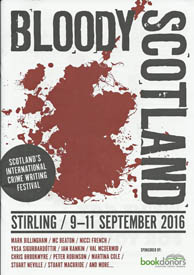
Perhaps then
I might be invited to an actual Bloody Scotland Crime Writing Festival rather
the simply the London press conference announcing this year’s programme. Although
I have to say that the schedule of events for the Stirling festival this year
(9th – 11th September) are enough to tempt anyone to
defect north of Hadrian’s Wall.
This will be
the fifth Bloody Scotland convention and, fittingly, is dedicated to the memory
of William McIlvanney, the founding father of ‘Tartan Noir’, who died late last
year. All the big names in Scottish crime writing will be there: Ian Rankin,
Val McDermid, Chris Brookmyre and M.C. Beaton, although it seems that visas
have been given to certain non-European citizens such as Nicci French and
Martina Cole. There will also be a special appearance of Yrsa Sigurdadottir
from Iceland, the country responsible for England leaving Europe for the second
time in a month.
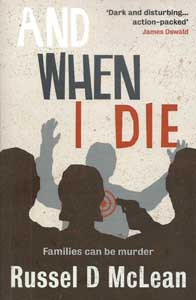
And whilst
on things Scottish, I have just discovered the Contraband crime fiction imprint
of Glasgow publisher Saraband, a mere two years since it was launched, for
which I have absolutely no excuse. However, even I could not fail to sit up and
take notice when one of the latest Contraband titles is And When I Die by Russel
D. McLean, who is probably best known for his acclaimed series of mysteries
featuring Dundee-based private eye J. McNee.
Russel’s new
novel, which will be launched at the Bloody Scotland festival, has a Glasgow
setting and, needless to say the Glasgow underworld. The plot revolves around
an undercover cop gone bad (which we know can happen) planted inside the
infamous Scobie gang. Scariest of all in the awful Scobie clan is Ray, the
family hard man who suffers from Congenital Insensitivity to Pain condition. Consequently
when a hit is put on Ray (by his father), he doesn’t get killed, merely
discomforted and of course now he’s out for revenge.
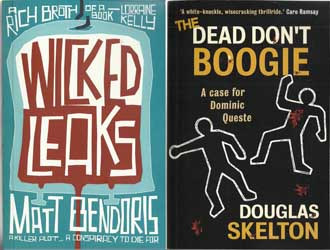
Two other
Contraband titles which will feature at Bloody Scotland are the cheekily titled
Wicked
Leaks by award-winning journalist Matt Bendoris, which is described as ‘a
taut and twisted tale for today’s Twitterati’ and The Dead Don’t Boogie by former True Crime specialist Douglas
Skelton. Readers are told to expect scenes of drug-taking (certainly), violence
(probably), flashing images (unlikely) and ‘more pop culture references than a
Simon Pegg movie’ -so you can’t say you haven’t been warned.
Other Bloody Europeans
I know I
shouldn’t go on about it, but just to rub salt in the wound I have just read what
is probably going to be the feel-good-Euro-read of the summer.
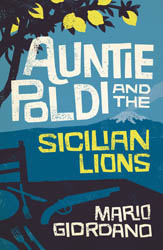
Auntie
Poldi and the Sicilian Lions
by Mario Giordano introduces a wonderfully whimsical new detective in the shape
(perhaps that should be ‘shapely’) of a 60-year-old Bavarian widow and Madonna
fan, who has retired to Sicily to drink herself comfortably to death whilst
enjoying a sea view. Once there, whilst innocently (okay, not so innocently)
eyeing up any male in a uniform, Isolde (‘Poldi’) rapidly trips over a body
murdered in classic Sicilian fashion and turns detective, her exploits
chronicled by her writer nephew, who seems rarely surprised by his aunt’s
eccentricities.
This
delightfully wry novel is, I suppose, an excellent example of some sort of union, if that’s the right word, of
European characteristics…Let’s call it the ‘EU’ factor for short. Auntie Poldi
is German (EU) and moves to Sicily (EU), whilst the author was born in Munich
(EU), the son of Italian (EU) immigrants.
In fact it is easy to spot that Mario Giordano is a European as when he
mentions Visconti’s famous 1964 film (set in Sicily) of The Leopard, he says it stars Alain Delon and Claudia Cardinale,
which indeed it does. A Brit (or an American) could not have resisted
mentioning that the lead character was played by Hollywood legend Burt
Lancaster, so perhaps we really aren’t Europeans after all.
As it is set
in Sicily, which is known as ‘the land where the lemons grow’, it is totally
appropriate that this first Auntie Poldi novel should be published here this
month by Bitter Lemon Press who, I presume, are totally European in outlook.
Americana
There are certain American crime writers whose work I both rate and enjoy, but when I mention their names in the UK, I am met with the blank looks usually used by publishers when one is asking for an advance on royalties. Two examples spring to mind: Gerald Petievich, a former US Secret Service agent who began writing excellent thrillers in the 1980s (Money Men, To Live and Die in L.A. etc) and Doug J. Swanson, a Texan journalist and award-winning writer of some very funny mysteries (Dreamboat, 96 Tears etc.).
I admit I came to both Petievich and Swanson rather late, perhaps five years after they had been first published over here but that was not a problem, rather something of a delight as I had their backlists to track down and enjoy. (Although neither has published here recently, their books can be found on line and I still recommend them highly.)
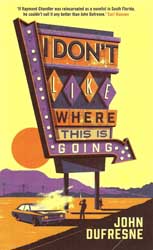
Now I have discovered John Dufresne – late again, an inexcusable two years after he gave an interview to this very magazine – thanks to Serpent’s Tail and his latest novel I Don’t Like Where This Is Going and it appears that I have another backlist to catch up on.
Reading Dufresne’s latest I was reminded on the pleasure I took from my first exposure to the whacky world of Carl Hiaasen and the poetic thrillers of James W. Hall. Both Hiaasen and Hall are proud members of the ‘Florida Noir’ school of mysteries and so too, I hear, is John Dufresne, although I Don’t Like Where This Is Going is only partially (though hysterically) set in Florida, most of the action taking place in Las Vegas where burnt-out therapist and observer of human foibles, of which there are quite a few examples in Vegas, Wylie Melville is lying low and trying unsuccessfully to stay out of trouble. It is through Wylie’s often bloodshot eyes – and yes, he is known as ‘Coyote’– that we see a bleak, anarchic America populated by a huge cast of eccentric characters, many of whom have only brief walk-on roles but each are nailed in reality by Dufresne’s rolling style of observational comedy.
There are some great gags and a road-trip from hell (which includes the compulsory Florida Noir element of cruelty to wild animal, is this case an armadillo) and lots of serious drinking. I am grateful to have discovered Wylie Coyote Melville and John Dufresne, for I now have his previous titles to track down and enjoy as well as the determination to try (as his characters recommend) a Bloody Mary made with bacon-flavoured vodka, while I still have the strength.
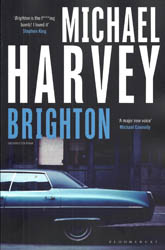
I did discover the hard-boiled Chicago private eye thrillers of Michael Harvey when they first appeared over here a few years ago and remember recommending The Chicago Way and The Third Rail. Sadly, I cannot be as enthusiastic about his new novel from Bloomsbury Brighton – which refers to a neighbourhood of Boston rather than that humming and vibrant city with a Premiership “soccer” team on the English south coast.
It’s not that the book is badly constructed or poorly written – it certainly isn’t – but Harvey has turned away from his interesting private detective Michael Kelly and his Chicago surroundings, to give us an Irish-Catholic-wrong-side-of-the-tracks crime novel with redemption coming through the spiritual power of baseball. I got the feeling I had read or seen this all before (Dennis Lehane? The Departed?) but there again, I am not capable of rational judgement as I’m afraid I was put off quite early on by the lovingly forensic detail about playing baseball. I am sure that would all make perfect sense to an American readership, but I cannot imagine the situation being reversed. Can you see an English author being allowed to slip a similar homage to cricket into an American edition? I don’t think so.
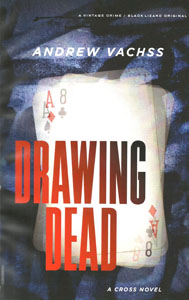 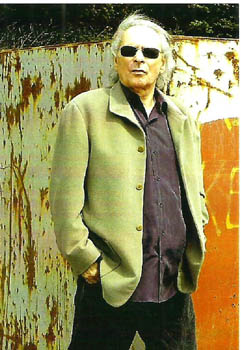
I am pretty sure that a cricket match has never featured in the fiction of Andrew Vachss, though if it had it would almost certainly have been a bloody and lethal innings. Drawing Dead is Andrew’s new novel, published in the US by Vintage/Black Lizard, and the latest in his series to feature the ‘Cross Crew’ of vigilante mercenaries dispensing their own brand of dark justice.
I have been a fan of Andrew’s particular brand of stone-hard, urban noir for over twenty-five years and still regard him as one of the most distinctive voices in American crime-writing, although newcomers to his work (especially his ‘Burke’ series) should be warned that this is very tough stuff. In the fictional world of Andrew Vachss, there are few prisoners.
Another American whose work I have enjoyed unbelievably for a quarter of a century (the ‘unbelievably’ refers to the amount of time, not the work) is that of the urbane globe-trotting sophisticate, Walter Satterthwait, a writer who has dedicated himself to avoiding the description ‘prolific’.
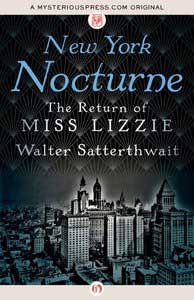 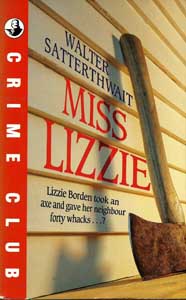
The creator of a most excellent private-eye (Joshua Croft) series based around Santa Fé, Walter Satterthwait has often shown that other string to his fictional bow, the ability to write delightful historical mysteries featuring real historical personages. These have included Harry Houdini, Arthur Conan Doyle, Oscar Wilde, Ernest Hemingway and the infamous suspected axe-murderess Lizzie Borden – she of “forty whacks” fame, according to the school-yard chant. In his 1989 novel Miss Lizzie, Satterthwait had an elderly Lizzie Borden, thirty years after being acquitted of the murder (by axe) of her father and step-mother, teaming up with bright 13-year-old Amanda Burton to solve – you’ve guessed it – another axe murder.
In New York Nocturne, Lizzie and Amanda return – at last - for another adventure, set in 1924 (Ms Borden lived until 1927) and in Jazz Age New York, so who better to help out with the investigation than Dorothy Parker? I look forward eagerly to discovering what fresh hell Walter has concocted this time.
|
|
Awards in Middle Earth
The regular reader of this column (yes, there is one) will know that I have no truck with the inordinate number – they are legion – of awards for crime writing there are these days, with the notable exception of any I may in the running for or the Ngaio Marsh Award for crime writing in New Zealand, for which in the past I have been proud to be a judge; and I have the t-shirt to prove it. The award is named, if you have to ask, after the most famous of New Zealand crime writers and one of the glittering stars of the ‘Golden Age’ of detective stories (But if you have to ask, you’re probably reading this column by mistake.)
In some ways I am relieved that I am not on the international panel of judges for the 2016 ‘Ngaio’ as I hear there has been a record number of entrants, which of course is good for the health of crime-writing down in Middle Earth, if not the eyesight of the judges. I can honestly say that in every year it has been run, whether I have been a judge or not, since the award was created by all-round good bloke Kiwi Craig Sisterson, I have discovered a new and exciting crime-writer - and in most cases, a writer I would not have come across otherwise.
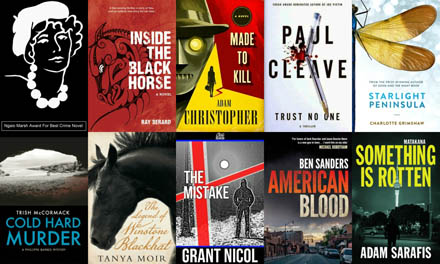
The nine books on this year’s longlist are pictured above and they will be whittled down to a short list this month, with the winner being announced in August at the Christchurch Writers and Readers Festival.
Stage Fright
John Harvey has written outstanding crime novels, a posse of westerns under a variety of pen-names and, many years ago under the name Jon Barton, the thriller Kill Hitler. (I wonder what that was about?) He has written, published and read poetry, often performing with accompaniment from a jazz ensemble. He has also adapted many a novel for radio but I do not think he has ever adapted one of his famous Resnick novels for the stage. Until now, that is.
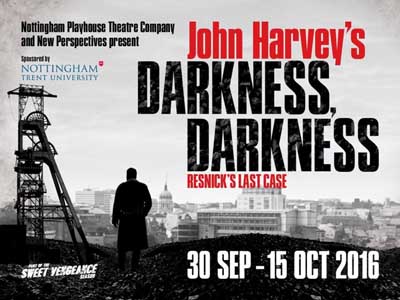
Fittingly, as John’s excellent novel is set in the bitter aftermath of the miners’ strike in Nottinghamshire, his dramatization of Darkness, Darkness will run at the prestigious Nottingham Playhouse from 30th September to 15th October.
Dystopia Rules
Whenever I see or hear the words “literary thriller” I experience a twinge in my stomach and, more often than not, my Blood Pressure creeps up, because I really don’t know what the term means. Could it refer to a serious novel of ideas which just happens to be quite exciting and suspenseful, or does it refer to a thriller which sets out solely to entertain but is actually quite well-written?
I was, however, tempted to try the “visceral debut literary thriller” Thirst by American lecturer in creative writing Benjamin Warner, published this month by Bloomsbury, even though the dystopian future of middle America it portrays pushes it towards the fantastic or science fiction genres rather than what most readers would call crime or thriller fiction.
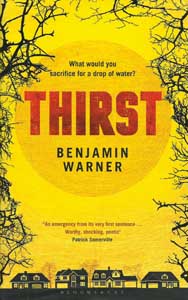 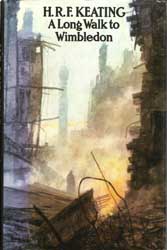
The basic premise of Thirst can be summed up as ‘how far would you go for a drink of water?’ in the same rather tiresome way that many current thrillers are promoted with strap lines such as ‘how far would go to protect a marriage/keep a secret/find a child/save a brother’ etc. etc. In the case of Thirst the actual line is ‘What would you do if the water ran dry?’ which is exactly, mysteriously, what happens and America grinds to halt remarkably quickly once the rivers run dry and the taps stop dispensing water (though characters still keep trying to have a shower!) and the last drinks machine stocked with Dr Peppers has been raided. It is full of interesting things and some genuinely scary moments and reminded me in many ways of Harry Keating’s 1978 dystopian novel A Long Walk To Wimbledon, which is praise indeed even though I’m pretty sure Harry never claimed it was a ‘literary thriller’ and he, as an eminent scholar of crime and thriller fiction, was a good judge of such things.
Stroke Association
The new novel by Jessica Mann, which sees a return to the page after too long an absence of her archaeologist sleuth Tamara Hoyland, The Stroke of Death has an added poignancy in that it could well be the last crime novel to be published by Robert Hale, as the company has now been sold. Since its foundation in 1936, Hale became well known for westerns and crime novels and famous among book collectors as the (at one time) only hardback publisher of the great John D. MacDonald. We have Hale to thank for new editions of Elmore Leonard’s early work and Robert Bloch’s Psycho, as well as publishing the long-running ‘Constable’ series by Nicholas Rhea (Peter Walker) which formed the basis of the television series Heartbeat.

The Stroke of Death is a treatise on death, virtually every character in the book is facing it or dispensing it; very much a philosophical consideration of current attitudes to euthanasia, some of it practiced legally, some of it quite definitely not. In previous books, Tamara has come across as a tough, self-reliant heroine (once employed by the rather shady Department E for undercover security work), but now she’s twenty years older, a mother with grown up kids and an extended family to look after, including an absentee (and rather cowardly) husband, a recently dead father-in-law, an ailing mother, a terminally ill mentor (Thea Crawford, also from previous Mann novels), not to mention an odious brother-in-law and his transgender partner.
You know from early on that it’s not going to end well, but that’s the thing with death; it rarely does.
Coming Up
Once again time and the staggering number of proof copies which thud through the letter boxes every day here at Ripster Hall has meant that I can do scant justice to all the interesting new books coming over the next few weeks.
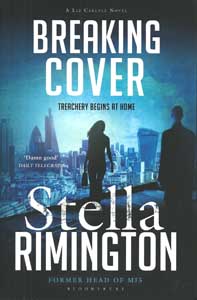
Just out from Bloomsbury is the latest spy thriller Breaking Cover by my fellow East Anglian, Dame Stella Rimington, who knows of what she writes. Series heroine Liz Carlyle, now posted to MI5’s counter-espionage desk, has a ringside seat for what seems to be shaping up as the new Cold War and the plot reads like something ripped from the headlines - or rather, the headlines of those stories we are allowed to be told.
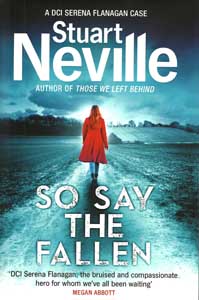
In crime writing terms, it would appear than Stuart Neville can do no wrong these days, at least from the effusive praise his work is garnering from the likes of Ian Rankin, Lee Child, Val McDermid, Dennis Lehane and John Connolly. Fortunately for us mere readers, the characters in his novels most definitely do wrong, or have terrible wrongs done to them. In So Say the Fallen, published by Harvill Secker this month, Neville reintroduces DCI Serena Flanagan (who suffered both personally and professionally in her debut appearance in Those We Left Behind) investigating the apparently cut-and-dried case of a disabled businessman who has committed suicide.
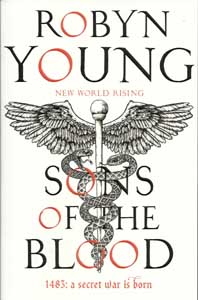
Out at the end of July is the new historical thriller from Robyn Young, Sons of the Blood which poses an intriguing connection between two historical events which happened seven years and about 5,000 miles apart: the death of that much maligned monarch (and Leicester City supporter) Richard III and Christopher Columbus’ expedition of discovery to the New World. The outrageous link is made with flair and imagination and Robyn Young is to be commended for not forgetting that cannon were used at the Battle of Bosworth. We have been so entranced by the famous cry “A horse! A horse!”. that the use of cannon in this important battle (which saw the death of the last English king of England) tends to be overlooked. And yet I do believe that it was the finding of cannon balls which helped archaeologists locate the accurate site of the battle after many years of tourists and white-rose wearing pilgrims visiting the wrong place!
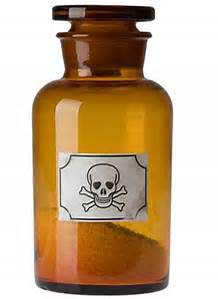
I am sure that these – and many other splendid new book – will be discussed by writers and readers as they mingle at that most friendly of event (despite its title), the annual Summer What’s Your Poison? party thrown at Heffers Trinity Street bookshop in Cambridge.
This year’s party takes place on Thursday 14th July at 6.30 and I already have my ticket as I know does Alison Bruce, Belinda Bauer, rising star Abir Mukerjee and – tempted out of his Islington stronghold – no less a celebrity than Professor Barry Forshaw. To join in this really sociable (and hardly homicidal at all) event, tickets are £6.50 and can be purchased at whatsyourpoison2016.eventbrite.co.uk or by calling 01223 463200 or in person at Heffers bookshop.
The Numbers Game
Given that Janet Evanovich’s new Stephanie Plum novel, coming this November from Headline, is called Turbo Twenty-Three, it would be a fair assumption that Janet Evanovich had written twenty-three books (with her Stephanie Plum adventures, the clue is usually in the title…). In fact the actual figure is nearer sixty and she has new books with co-authors appearing (also from Headline) in June and July The Pursuit (with Lee Goldberg) and Curious Minds (with Phoef Sutton).
Coppering in Gunnarshaw
To be perfectly honest, I had never thought of the ‘Sergeant Cluff’ novels by Gil North (the pen-name used by Geoffrey Horne) as ‘Crime Classics’, but then I have actually never read any. Still, if the British Library, which has just reissued the first, Sergeant Cluff Stands Firm from 1960, calls it one it must be so.
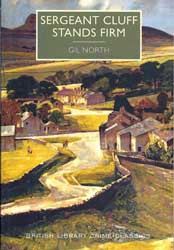
In fact, I don’t remember the Sergeant Cluff books which appeared regularly, one a year throughout the 1960s at all – but then again, it was the 1960s… Yet I do vaguely recall the character – not to be confused with Wilkie Collins’ rather more famous rose-growing Sergeant Cuff from The Moonstone – as a gruff but avuncular policeman, a sort of North Yorkshire Maigret, whose beat was ‘Gunnarshaw’ in the Dales, from his short-lived, though popular, television incarnation in 1964-65 as portrayed by actor Leslie Sands.

To be brutally honest, not only did I never read Gil North’s books but I don’t believe I ever saw the television series and my pathetic knowledge of Sergeant Caleb Cluff comes via another author and another fictional detective entirely. In the early 1990s I became what used to be called ‘pen pals’ with Rodney Wingfield, the creator of Inspector Jack Frost, and although ‘pen pals’ sounds almost antique, we were up with the latest technology, corresponding initially by Fax(!) and latterly email. Eventually Rodney and I started to meet for lunch and it was on one such occasion that he told me that his first choice (though nobody had asked him) for the role of Frost when the immensely successful television adaptations starring David Jason were being planned, had been Leslie Sands. It had been Sands who had first brought the character of Inspector Frost to life, in a radio play in 1977, giving a performance which the author fully approved of, even though Leslie Sands had been a replacement for the actor who had to pull out of the recording at the last minute – Ronnie Barker.
Apologies for Absence
I have in the past always looked forward to a new ‘Inspector Pekkala’ thriller from Sam Eastland (aka Paul Watkins) and any new spy novel by Charles Cumming, for I have long enjoyed and rated very highly their fiction.
I read in the popular Press that both have new novels out now from, respectively, publishers Faber and HarperCollins, but I am afraid I can tell you absolutely nothing about them.
Ripper News
I much admired – even if I was not totally convinced by – Wynne Weston Davies’ investigation into his family history and the legend of Jack the Ripper which appeared last year as The Real Mary Kelly. The central theme of the book being that ‘Mary Kelly’ – Jack the Ripper’s fifth (and final?) victim – over whose identity there have always been question marks, was in fact Elizabeth Weston-Davies, Wynne’s great aunt.
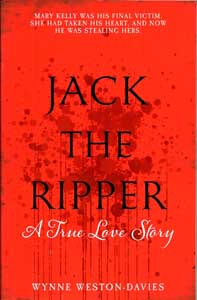
The book has now appeared in paperback, from Blink Publishing, but under a new title: Jack the Ripper, A True Love Story, which actually does sum up the thesis of this well-researched and quite fascinating story.
Wynne Weston-Davies, incidentally, is the son of the late John Weston Davies (1909-1996), better known as Berkely Mather the thriller writer and one of the scriptwriters on the first James Bond film, Dr No. Mather served as Chairman of the Crime Writers’ Association 1966-67, though it is unlikely that his fellow members of the CWA realised they were in the presence of a relative (if ‘Mary Kelly’ really was Mather’s aunt Elizabeth) of the victim of possibly the world’s most notorious unsolved crime. You have to read the book to discover whether Wynne has in fact solved it…
The Lady in the Upstairs Bar
One balmy evening last month, when the country was still in Europe (in both senses of the word) I paid a visit to The White Swan public house on New Row in London’s Covent Garden. I always find a visit to a London pub these days to be something of an education, discovering ales and porters from breweries that were garages or garden sheds but a year ago, and being constantly surprised at the willingness of customers to pay “how much?” a pint, without resorting to a second mortgage.
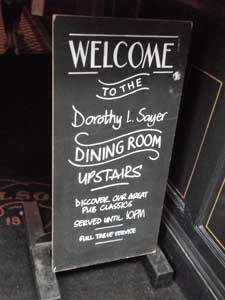
In the course of my visit, my eye was caught by a sign informing me that the establishment has an upstairs bar named in honour of the famous crime writer Dorothy L. Sayers. Now I’m sure Dorothy was not averse to the odd visit to a Four-Ale Bar, but I was not aware the White Swan was one of her regular haunts.
It seems that the pub features in one of Dorothy’s famous mysteries, Murder Must Advertise, being visited by Dorothy’s toff sleuth Lord Peter Wimsey. However, I understand this fact is disputed by some pub and crime fiction historians, and it could be that the pub Dorothy actually had in mind was the White Lion, a market porters’ pub, in James Street.
I think it important that such a question mark is not left hanging over such a crucial issue and I shall dedicate my next visit to London to discovering the truth, however arduous the task and however much “research” I have to do.
Toodles!
The Ripster.
|